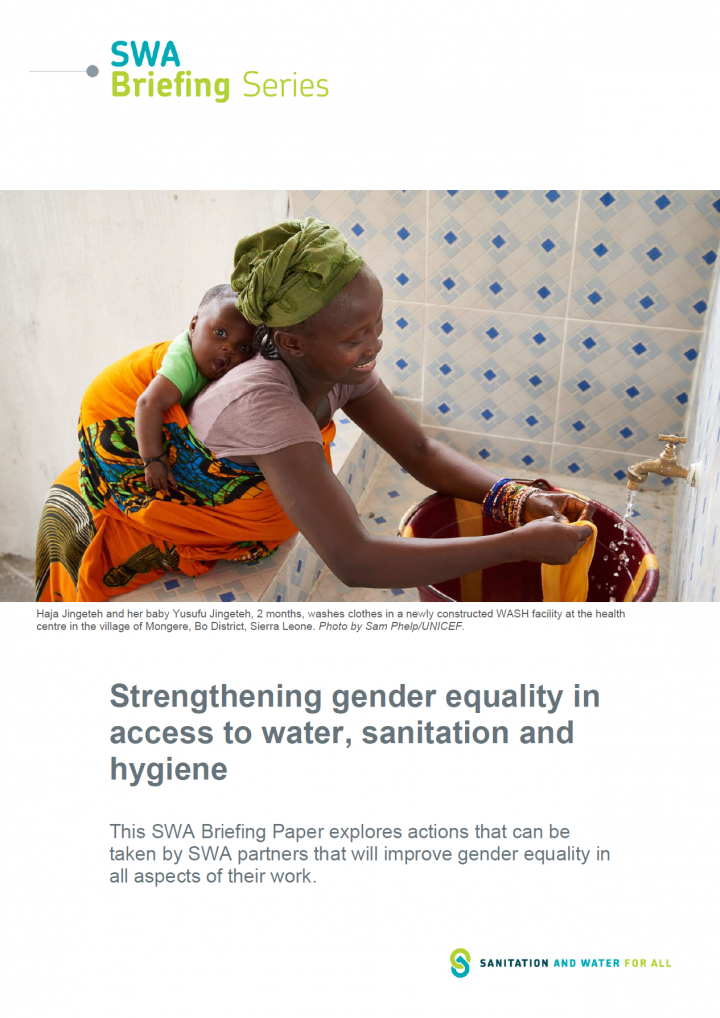Strengthening gender equality in access to water, sanitation and hygiene SWA (2021)
This SWA Briefing Paper explores actions that can be taken by SWA partners that will improve gender equality in all aspects of their work.
While there has been significant progress over the last few decades, gender inequality continues to be one of the most pervasive human rights violations throughout the world. Despite considerable attention and commitment, including through the SDGs’ gender equality goal, no country has yet successfully eliminated this form of discrimination.
As in all sectors, there are gender inequalities regarding access to water, sanitation and hygiene. These inequalities are a result both of social constructions of gender, which rely on harmful stereotypes about women’s and girls’ roles and responsibilities in the household and community, and of biological factors which only impact women and girls.
Social constructions of gender often dictate women’s domestic tasks, such as collecting water and caring for the family, as well as women’s roles as community and health workers, where women comprise 70 per cent of the health workforce, while holding only 25 per cent of senior roles. Social constructions also include the stereotypes of ‘femininity’, for example regarding the perceived need for female modesty, which can impact how and where women and girls are able to access sanitation.
Bibliographic information
SWA (2021). Strengthening gender equality in access to water, sanitation and hygiene SWA
Filter / Tags
Peri-urbanRuralSchoolsUrban (entire city)Politicians and local decision makersPractitionersEnglishImport to Sanitation Workers PlatformWomen's rights & representation and empowermentGender equalityGender transformative WASH

